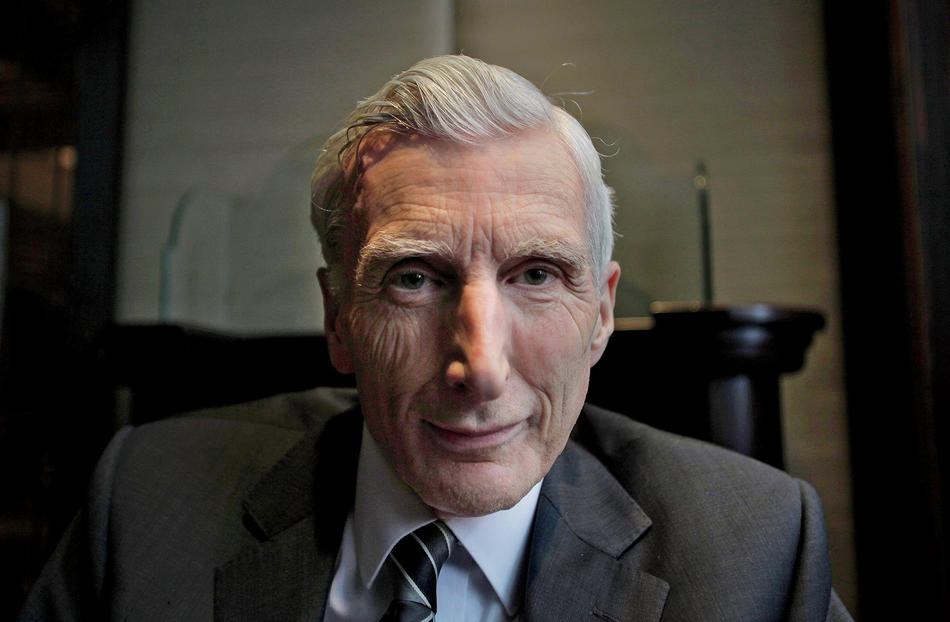Sure, it wouldn’t be all butterflies and rainbows, but who could resist hearing Sir Martin Rees, Lord Rees of Ludlow, the bushy-browed former master of Trinity College, Cambridge, and current British Astronomer Royal, prognosticate about our planet in 2050? Alexander Halliday, the director of Columbia’s Earth Institute, had invited Rees to give a public talk based on his new book, On the Future: Prospects for Humanity. As two of the UK’s leading scientists, Rees and Halliday go way back. Now it was time to look ahead.
Rees often has to explain that he is an astronomer, not an astrologer. Still, he told the audience in Pulitzer Hall, “even with a cloudy crystal ball, there are some things we can predict.” To wit: the world will get more crowded, and the world will get warmer.
Naturally, this will require adjustments. To feed ten billion people, Rees said, we’ll have to cut our beef intake, since raising cattle consumes huge amounts of water and energy. “We must realize that insects are highly nutritious, and they can be made palatable.” Though bugs and genetically modified crops will bolster the food supply, the doubling of Africa’s population due to increased life expectancy will be, Rees said, a major challenge.
On the climate front, Rees pushed for an international program to hasten research and development on all forms of clean energy and make it affordable globally. Failing that, “there will be pressure for a Plan B,” which could mean “injecting aerosols into the stratosphere to cool the climate.” (The audience was rooting for Plan A.)
Rees then speculated on the future ethical conundrums in fields like genetic engineering, where uneven standards could result in untold depravities. “I worry that whatever regulations are imposed on prudential grounds or ethical grounds cannot be enforced worldwide any more than drug laws can or tax laws can,” he said. “And that’s a nightmare.” Similarly, Rees foresees conflicts as robots take over legal work, medical diagnostics, even surgery. How “human” will robots become, and what obligations would we have to them?
As an astrophysicist, Rees looks to the heavens for comfort. Ultimately, he thinks, our future lies in space, with private companies leading manned voyages to Mars and, someday, to one of the hypothetically habitable planets in our galaxy. And while it is a “delusion to think that space offers an escape from Earth’s problems,” we should “cheer on these brave space adventurers, because they will have a critical role in spearheading the post-human future” in which people, merging with machines, could evolve into a new species with powers that we “can’t even imagine.”
And this could solve that most vexing problem: a sun that, in 4.5 billion years, will die. “Humans could jump-start a diaspora whereby ever-more-complex intelligence spreads through the galaxy,” Rees said, now peering well beyond the twenty-second century. “There is plenty of time,” he mused, “for that to happen.”



